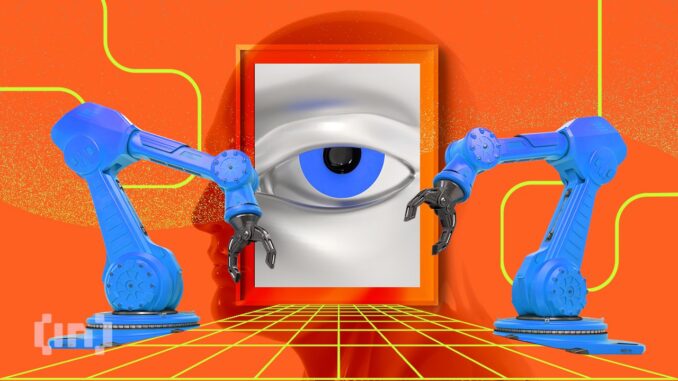
New AI projects are using artificial intelligence to streamline the development process by automating repetitive tasks. While the goal is to optimize efficiency, concerns have been raised about the potential impact on employment rates and the economy.
This article explores the cost of AI efficiency and the potential need for Universal Basic Income (UBI) as a solution.
AI Streamlining Development to Free Up Time and Money
UXOS AI and other similar projects are working to streamline the development process and reduce development time and cost. It operates on the Binance Smart Chain network and creates a customized set of tools to automate the development process.
While this approach can significantly increase efficiency and speed up project completion, there are concerns about the potential impact on employment rates and the economy in general.
As we consider the growing adoption of automation and AI, it may be time to start testing Universal Basic Income (UBI) for workers who are displaced or may be displaced soon.
Over and Over
The primary goal is to make things easier by automating repetitive tasks that can take up a significant amount of time and resources. This can include tasks such as testing, documentation, and bug fixing. By automating these processes, developers can focus on more complex and creative tasks, allowing for faster and more efficient project completion.
While the benefits of increased efficiency are clear, there are also concerns about the potential impact on employment rates and the economy in general. The use of automation and AI has the potential to displace human workers, particularly in industries where repetitive tasks are common.
The displacement of workers can have a negative impact on the economy as a whole. This can include reduced consumer spending, increased unemployment rates, and a decline in economic growth. As we consider the growing adoption of automation and AI, it is important to consider the potential long-term consequences.
Universal Basic Income: More Than Just Free Money?
One potential solution to the impact of automation on employment rates is the implementation of Universal Basic Income (UBI). UBI is a system in which all citizens receive a guaranteed income, regardless of employment status. This income can help to mitigate the impact of automation and ensure that workers have a basic standard of living.
Testing UBI in response to the growing adoption of automation and AI is an important step in ensuring the economy’s long-term health. By providing a guaranteed income, UBI can help to reduce the impact of automation on employment rates and provide a safety net for those who may be displaced.
However, there are concerns about the cost and feasibility of implementing UBI on a large scale. Some argue that UBI could be too expensive and may not be sustainable in the long term. Others worry that it could create a culture of dependency and discourage individuals from seeking work.
The Future of Automation and AI
As the adoption of automation and AI continues to grow, it is important to consider the potential long-term consequences. While increased efficiency is an obvious benefit, it is important to consider the potential impact on employment rates and the economy in general.
Implementing Universal Basic Income may be one solution to mitigate the impact of automation on employment rates. However, there are concerns about the cost and feasibility of implementing UBI on a large scale.
As we move forward, it will be important to strike a balance with efficiency. And the well-being of workers and the economy as a whole. By doing so, we can ensure that all members of society share the benefits of automation and AI—not just a privileged few.
Final Thoughts
AI presents promising solutions for automating repetitive tasks and streamlining the development process. However, as with any new technology, there are potential drawbacks and long-term consequences to consider.
The displacement of workers due to automation is a growing concern. One solution to curb its impact is the implementation of Universal Basic Income. Finding a balance between efficiency and the well-being of workers and the economy is crucial as we move forward.
Ensuring that all members of society benefit from AI requires sharing the perks. Rather than limiting them to a select few. As more companies look to adopt AI in their operations, it is key to monitor the impact on employment rates and the economy. And to explore innovative solutions that can help to mitigate any negative effects.
Disclaimer
All the information contained on our website is published in good faith and for general information purposes only. Any action the reader takes upon the information found on our website is strictly at their own risk.






Be the first to comment